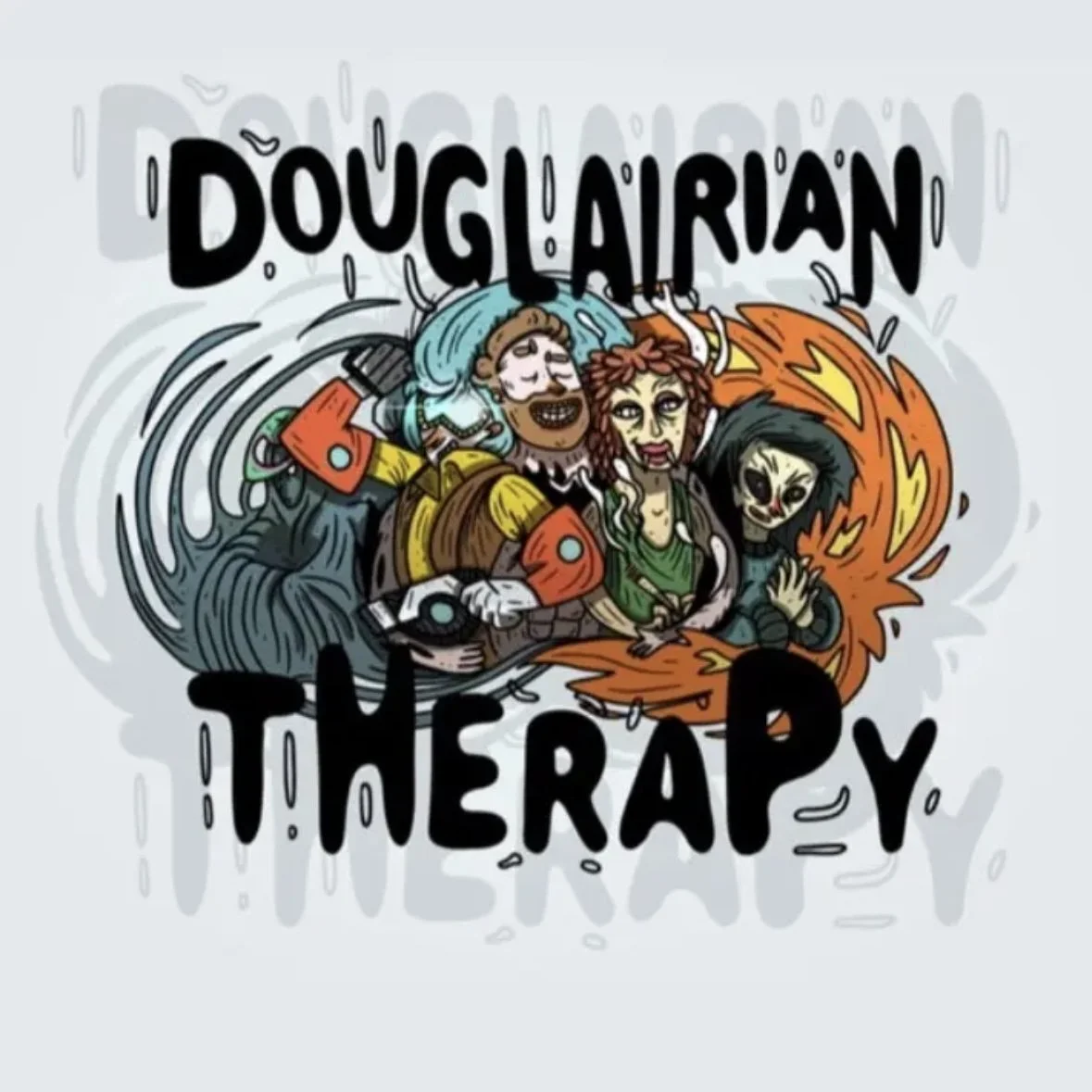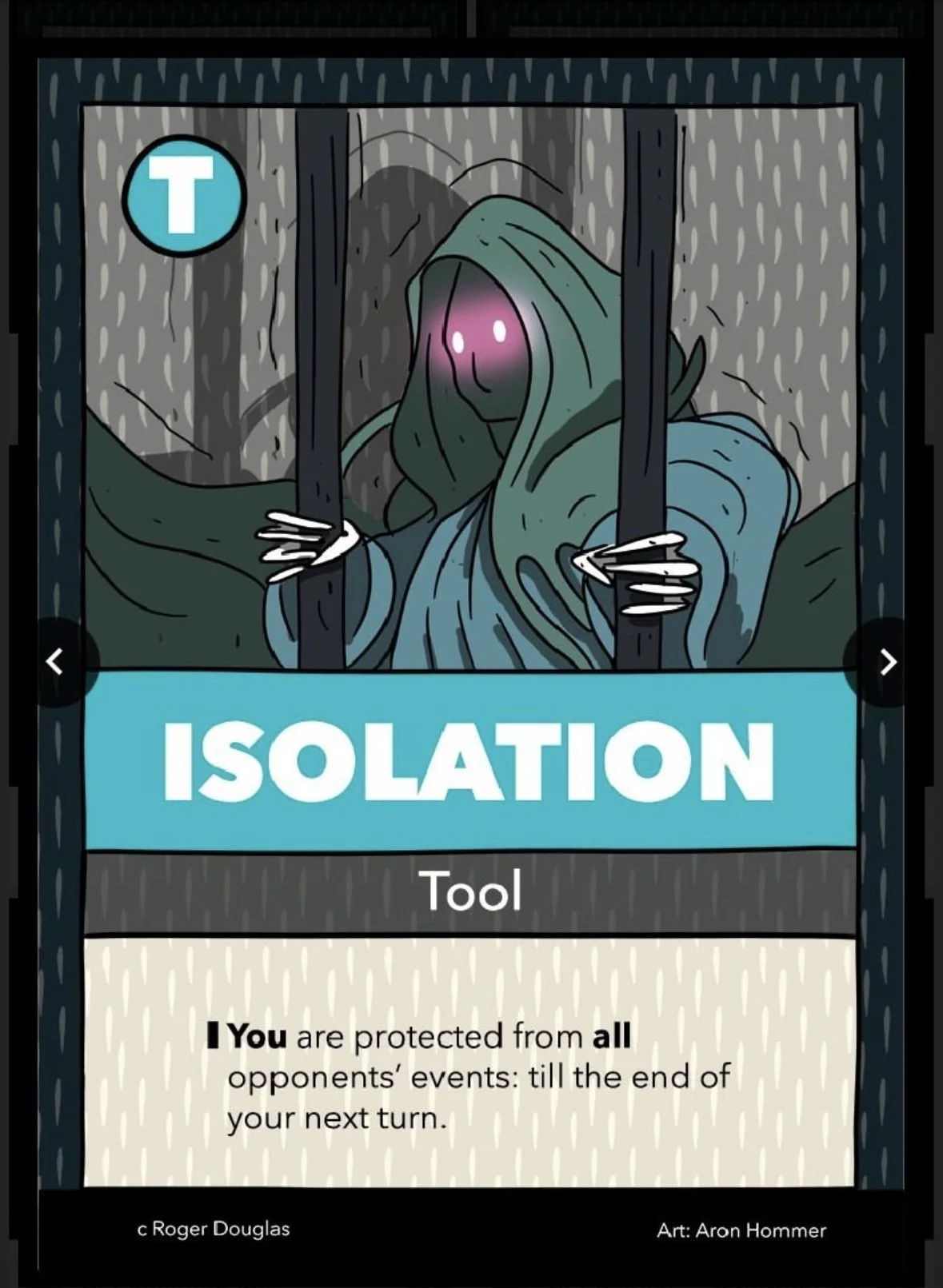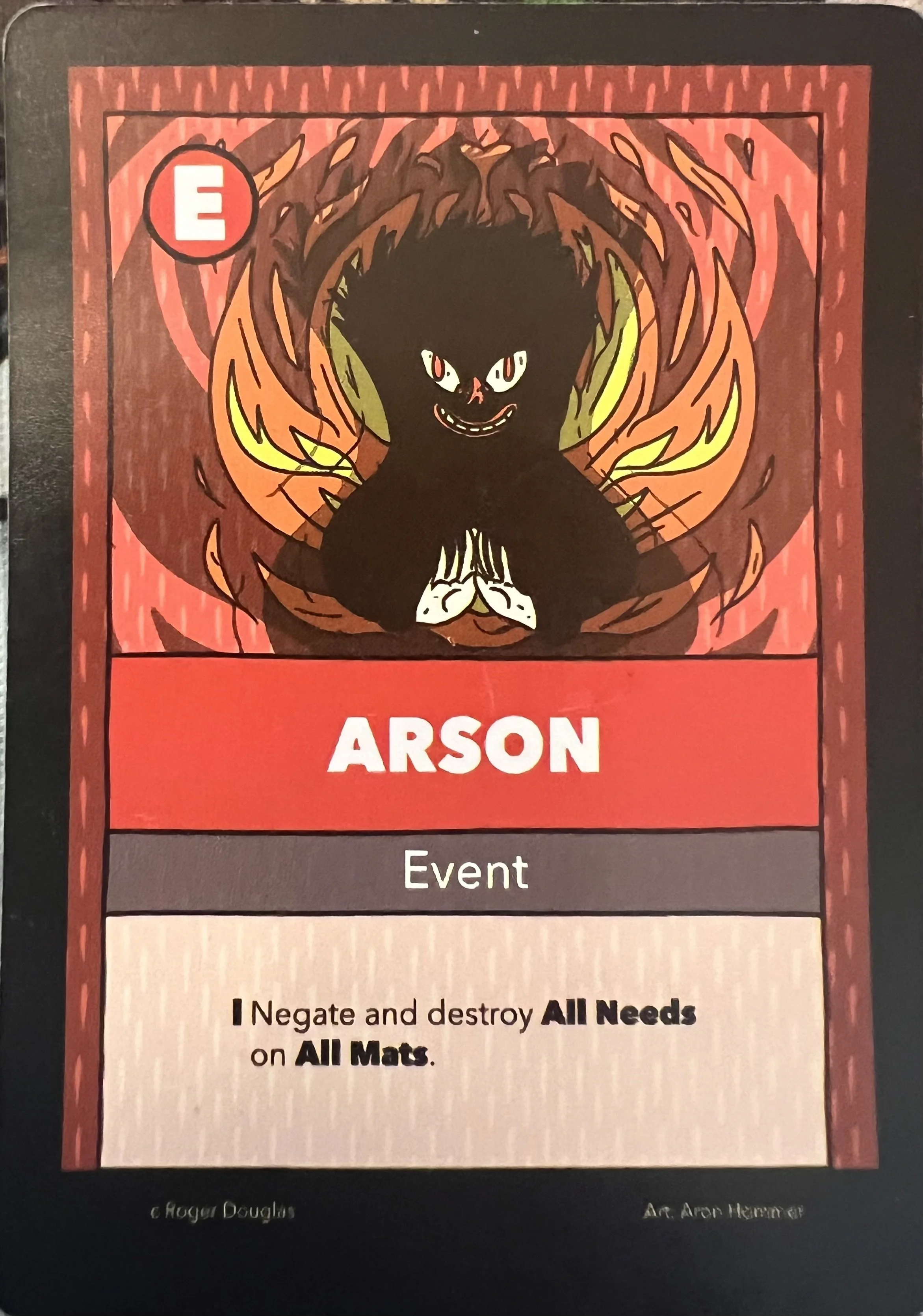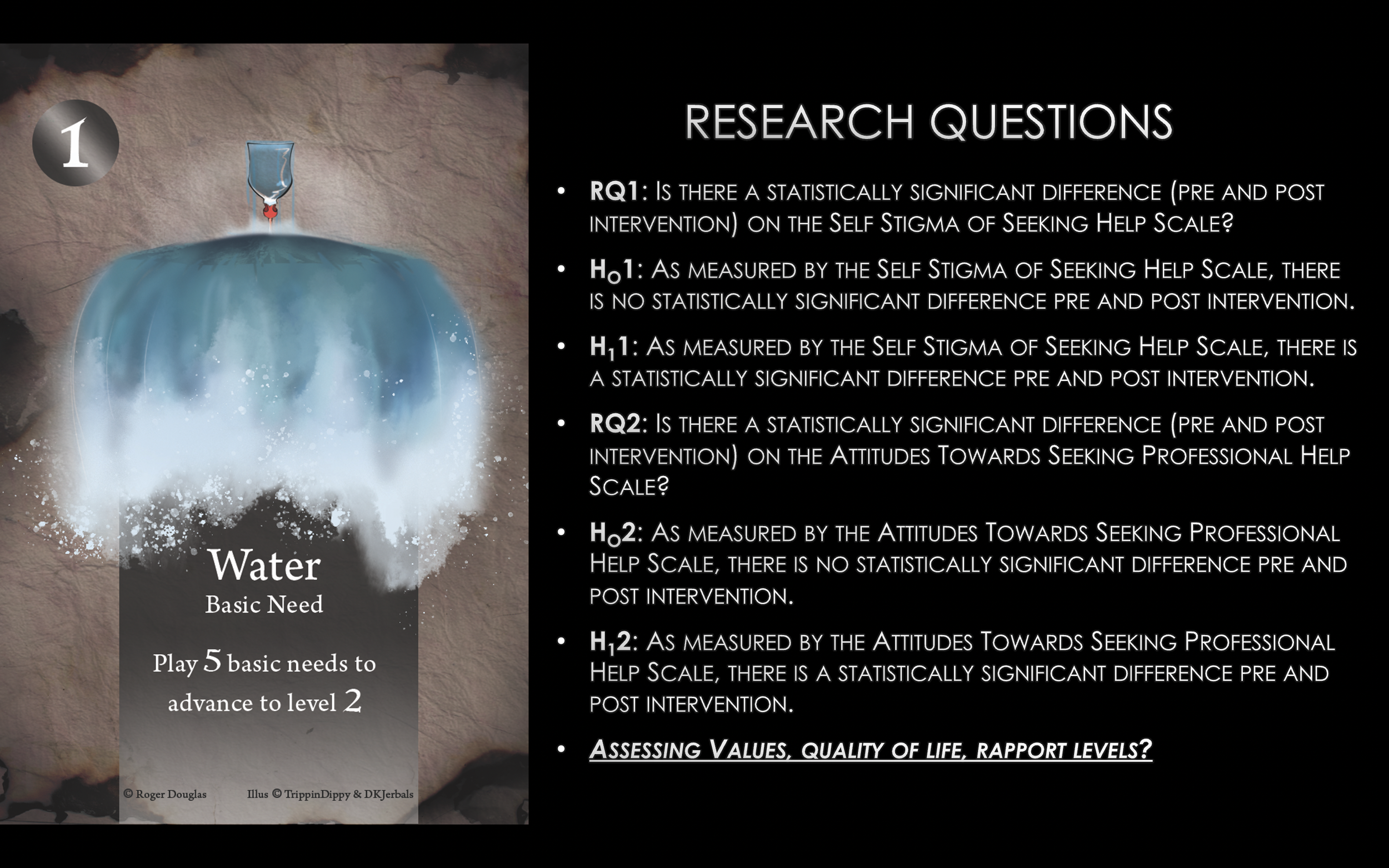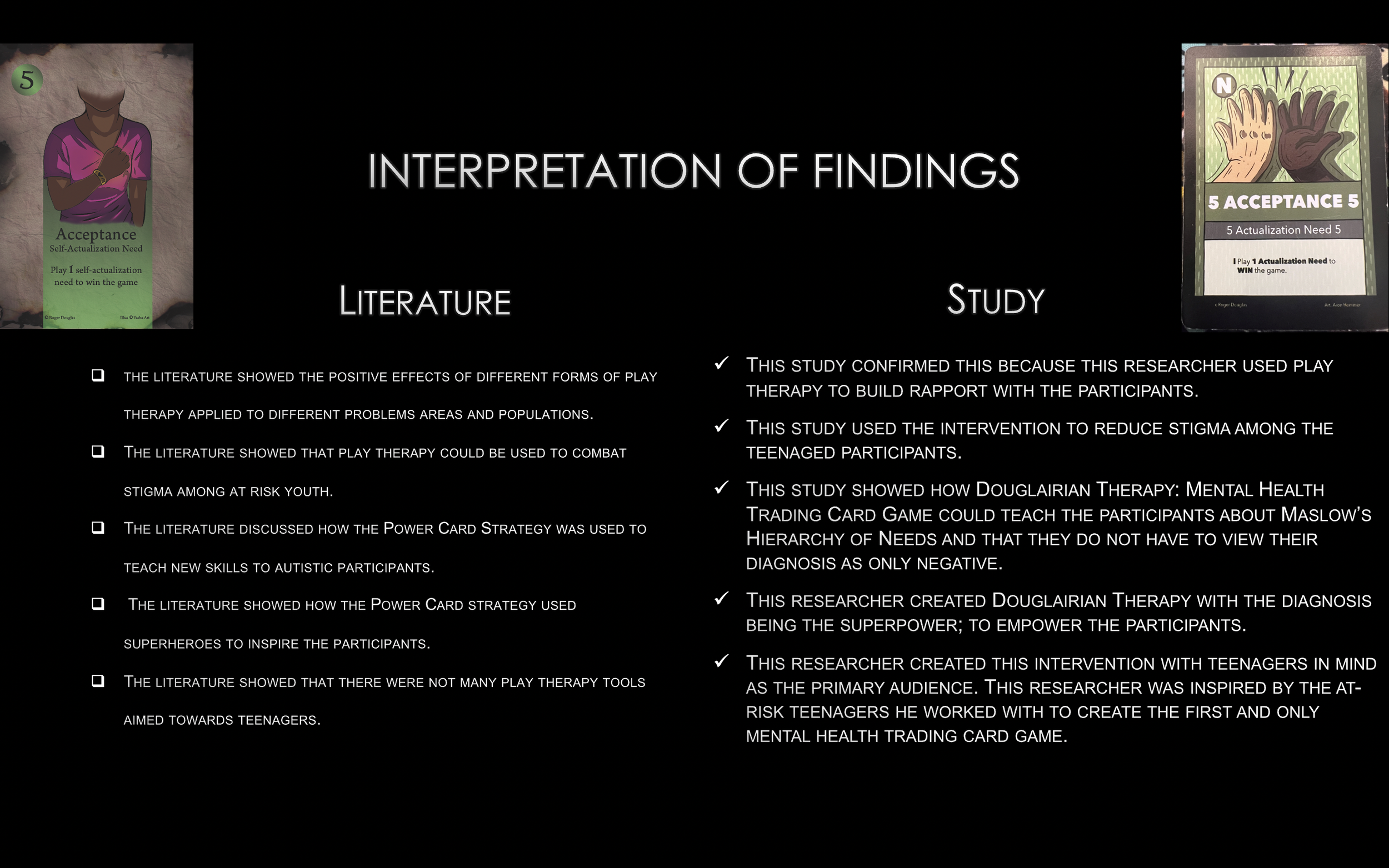Stigma around mental illness, substance abuse, discrimination, and stereotypes directly interfere with mental health care seeking behavior. Mental Health Stigma has a major effect on early intervention, prevention, and treatment. Many children are not receiving the help they need. There is a growing emphasis on the need for mental health services that are accessible to children. The consequences of mental health stigma are a high incarceration rate, high suicide rate, and high overdose rate. The desired outcome of this study is that Douglairian Therapy: Mental Health Trading Card Game intervention will reduce the stigma of the participants of this study. The purpose of this experimental cross-sectional quantitative study was to evaluate the intervention against mental health stigma.
Problem Identification
Stigma around mental illness, substance abuse, discrimination, and stereotypes directly interfere with mental health care seeking behavior. Simply, people are not getting the help they need because they are afraid of becoming labeled as “crazy” or an “addict”. Minority youth are highly susceptible to negative views towards mental health services.
Background of the Problem
Mental health stigma has a major effect on early intervention, prevention, and treatment. According to Cochran and Cochran (2017) minority children who grow up in low-income neighborhoods are more likely to end up in prisons. These children tend to have fewer academic achievements, exhibit more behavioral problems, and can become aggressive. The study analyzed client centered play therapy (CCPT) on the following problem behaviors: (1) physical behavior that is inappropriate; (2) acts or threats of aggression; and (3) relational/social problems. The results from the study show that play therapy was effective in reducing these highly disruptive behaviors (Cochran & Cochran, 2017).
Significance of the Problem
Many children are not receiving the help they need. Meany-Walen et al. (2016) stated that the research on government reports shows that there is a growing emphasis on the need for mental health services that are accessible to children. Students tend to participate in school mental health programs only as a disciplinary measure to curb internalizing and externalizing behaviors in the classroom setting. The purpose of that study was to test the effectiveness of play therapy in off task behaviors of children with poor social skills. The results showed that play therapy was effective in reducing off task behavior (Meany-Walen et al., 2016).
Consequence of the Problem
The consequences of mental health stigma are a high incarceration rate, high suicide rate, and high overdose rate (e.g., Chang & Ray, 2016). The inability to receive mental health treatment can lead to lack of social-emotional competency. According to Cheng and Ray (2016), social-emotional competence is an important skill that children must develop to achieve success in the future. If the child is unsuccessful in acquiring this skill, they are more likely to succumb to: (a) delinquency; (b) maladjustment; (c) failed relationships; and (d) academic failures. These problems can also lead to the following issues: (a) behavioral; (b) social; and (c) emotional (Cheng & Ray, 2016).
Desired Outcome of the Intervention
The desired outcome of Douglairian Therapy: Mental Health Trading Card Game intervention was to reduce the stigma of the participants of this study. This was assessed through the Self Stigma of Seeking Help Scale and the Attitudes Towards Seeking Professional Help Scale. Increased scores on both scales during the maintenance period will show a decrease in mental health stigma. If more people get the help they need, there could potentially be a drastic decrease in suicide, incarceration, and overdose: even though effects on those factors will not be assessed in this study.
Implications
The first implication of this study is that Douglairian Therapy was able to decrease selfstigma among the participants in this study in statistically significant way. The second implication of this study is that Douglairian Therapy was able to promote positive attitudes towards seeking professional help among the participants in this study in a statistically significant way. The significance of this information is that many at risk teenagers have stigma towards seeking help. Most of the time, they are being mandated to drug programs as a term of their probation. While these teens are in these programs, often there is a barrier between the client and the care provider building rapport. Douglairian Therapy can be used to help build rapport with the client and reduce any self-stigma attitudes towards seeking help.
Conclusion
The purpose of this study was to assess if there was a statistically significant difference on a measure of mental health stigma after being introduced to Douglairian Therapy: Mental Health Trading Card Game. The results of the study supported both hypothesis that the intervention would create a statistically significant difference in scores of the Self Stigma of Seeking Help Scale and the Attitudes Towards Seeking Professional Help Scale. The results also showed an improvement in scores for all participants after being exposed to the intervention for only 60 minutes. Douglairian Therapy was created to end the stigma around mental illness and substance abuse so that individuals would feel more comfortable seeking help. The suicide rates among the at risk youth population are heartbreakingly high.
